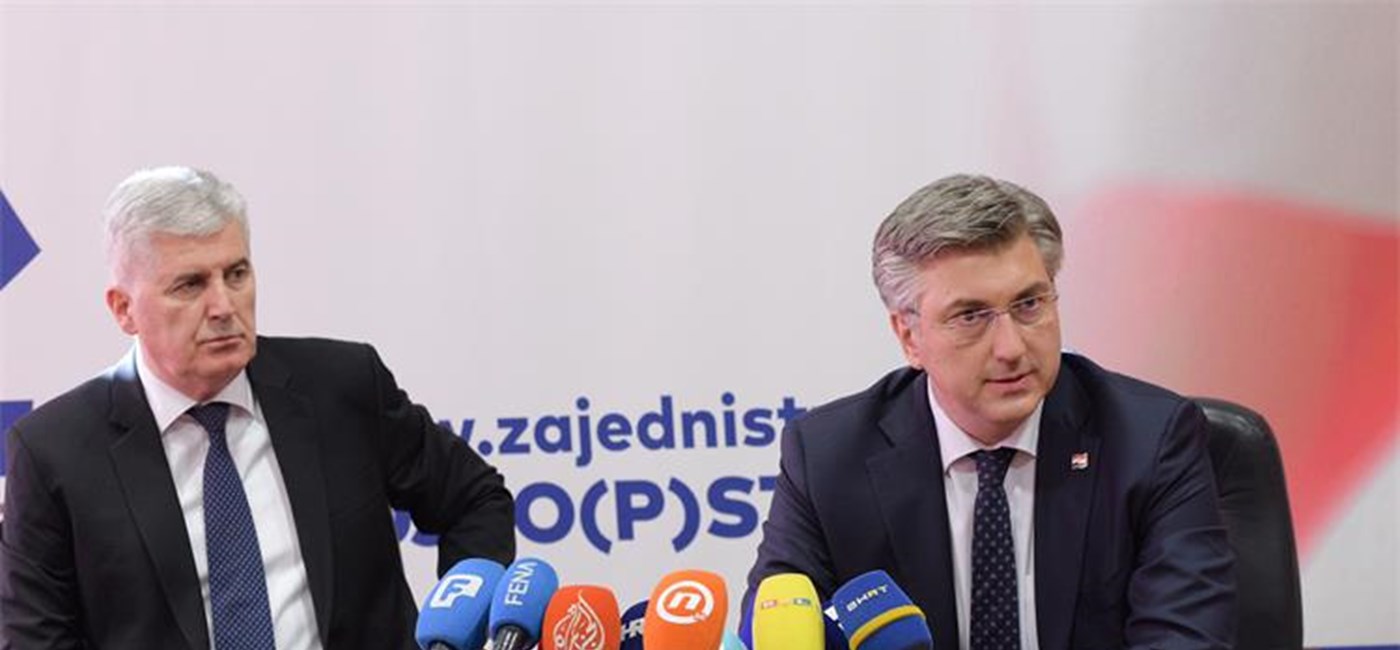The highest level of the European Union is ready to get involved, as is the US side, and to make additional efforts. In order for those talks to take place, the political will and desire of leaders of political parties in Bosnia and Herzegovina are needed, Plenković said in Mostar after a meeting with the leadership of the Croatian National Assembly of Bosnia and Herzegovina.
He added the talks would be organised as soon as the Croat and Bosniak parties show readiness.
At a press conference with HNS BiH leader Dragan Čović, Plenković said Croatia wanted to encourage an agreement between the Croatian and the Bosnik side.
We want to renew the alliance and partnership between Croats and Bosniaks in the Federation entity. In order for that to happen, it is key to reestablish trust, a greater understanding of each other's position, he said.
He recalled the role of the first Croatian President Franjo Tuđman in reaching an agreement on the establishment of the Croat-Bosniak Federation entity and the signing of the Dayton Peace Agreement.
According to Plenković, the condition for stabilising the relations between Croats and Bosniaks is changing the election law in order to guarantee the legitimate political representation of Croats, without them being outvoted by larger peoples.
Čović said that there was little time left to reach an agreement on the electoral reform, underscoring the Croatian side's determination to reach a compromise.
According to him, an agreement on changing the way members of the House of Peoples and the BiH Presidency are elected is possible, on which negotiators of the Croatian and Bosniak sides mostly agreed at meetings in Neum and Sarajevo.
The elections in Bosnia and Herzegovina are scheduled for October, and the Croatian side stresses that without changes to the election law, some provisions of which were annulled by the Constitutional Court, it is not possible to hold legal elections and establish a government.
So far, Bosniaks have elected Željko Komšić as the Croat member of the country's presidency three times, and in the upcoming elections there is a danger that Bosniaks might completely exclude Croats from power by electing for them a crucial number of members of the ethnic-based upper house, the House of Peoples, which elects the executive authorities.
Text: Hina

.jpg?preset=news-carousel-img)


